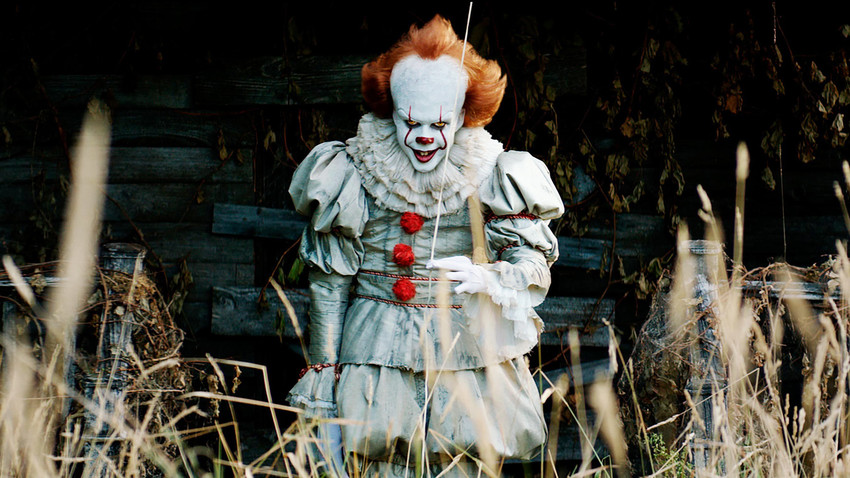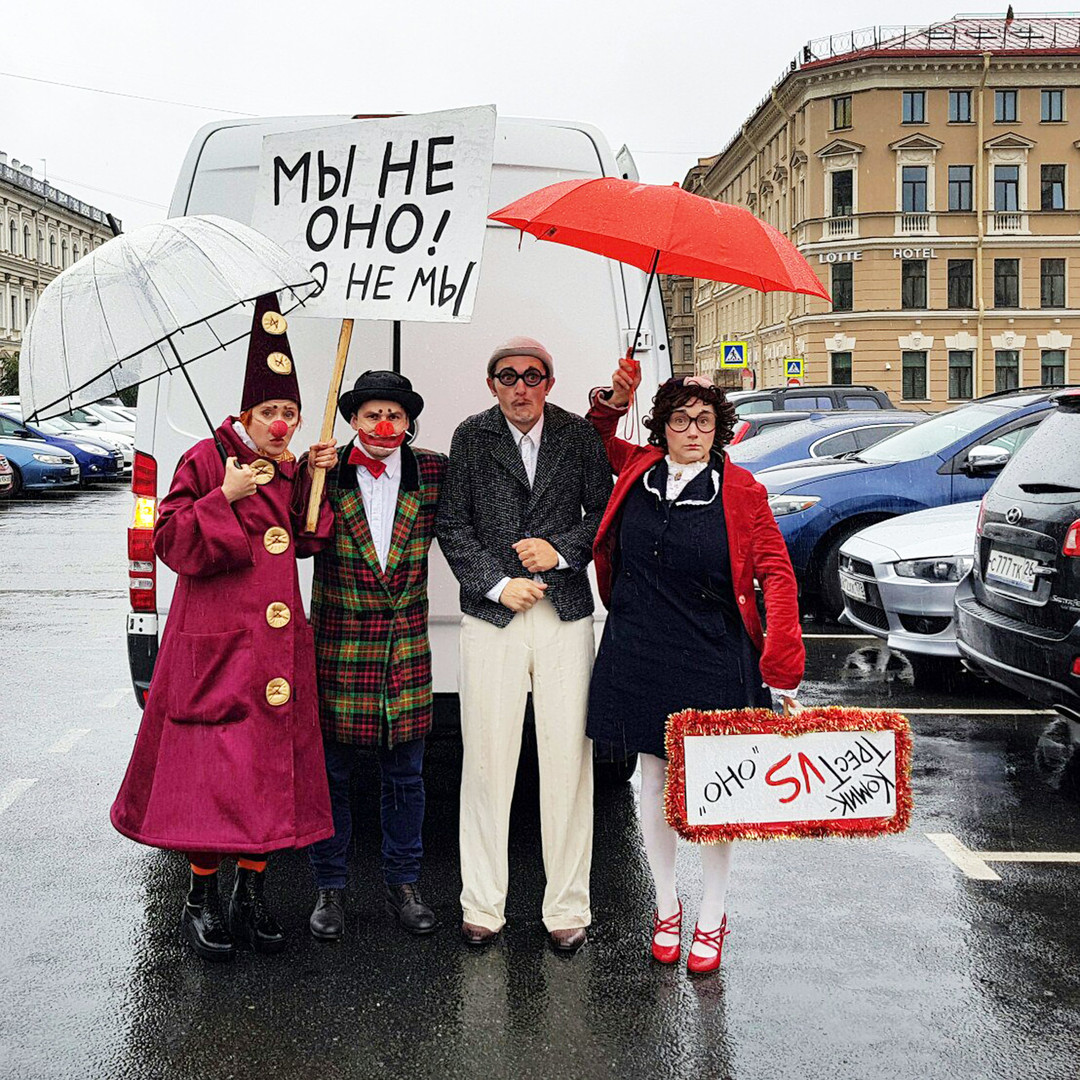
The movie “It” leads at the Russian box office, and as of Sept. 19, nearly two weeks after its release, over 1.5 million Russians have seen it, generating ticket sales worth 417.4 billion rubles ($7.3 billion), according to the website, kinobusiness.com.
The new screen adaptation of the 1986 Stephen King horror novel, which features a killer clown, has infuriated the international clown community, and Russian clowns are also voicing their anger. Some have protested against the film’s release in Russia, arguing that it discredits their profession.

Clown protest in St. Petersburg. The poster reads: " We are not 'It' and 'It' is not us."
Tatiana KondakovaOn opening day in Russian cinemas, clowns in St. Petersburg protested outside the city’s legislative assembly and issued a statement calling upon authorities to ban the film, and they encouraged the public to support them.
“We, clowns with 30 years of experience, believe that such ‘artistic’ films discredit our profession and hurt the feelings of all clowns in our country … we didn’t see the movie, but still we think that such a portrayal distorts the positive image of a clown as a kind, smart and honest character,” they wrote.
Also, a lawmaker in Russia’s Sverdlovsk Region, Anatoly Marchevsky, a former clown himself, also argued that the film should be banned. “One should not encroach on something that is associated with joy, holiday and a gentle soul,” he said.
While some support the idea, others mocked this approach. Russian filmmaker Alexei Fedorchenko, for instance, said that we could apply the same logic to movies such as “Saw,” or “Texas Chainsaw Massacre,” and accuse them of discrediting lumberjacks - which would be nonsense.
“If any subject portrayed in a film as a source of danger leads to panic, then we’d have a wide variety of phobias among the public, because in films anything can be portrayed this way – planes, maniacs, the dead, etc.” Andrei Kamenyukin, a clinical psychiatrist and director of the Clinic for Depression and Phobias, told RT. “A film by itself will not cause fear – for that, one needs a certain tendency to phobias that will cause such development.”
Stephen King, replying to many concerns regarding his story, didn’t apologize for choosing a clown as an evil character in his book. "Kids have always been scared of clowns," he wrote on Twitter. "Don't kill the messengers for the message."
If using any of Russia Beyond's content, partly or in full, always provide an active hyperlink to the original material.
Subscribe
to our newsletter!
Get the week's best stories straight to your inbox